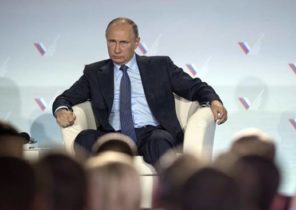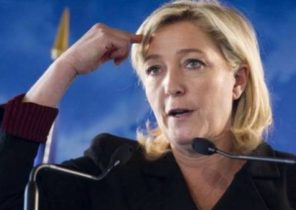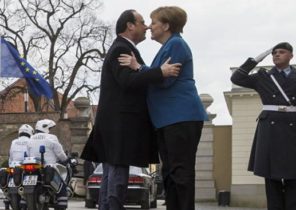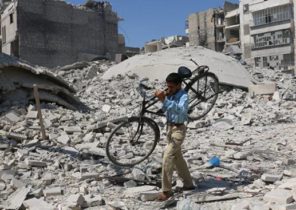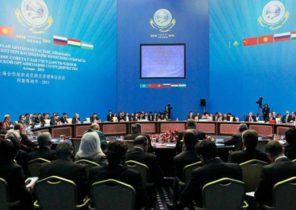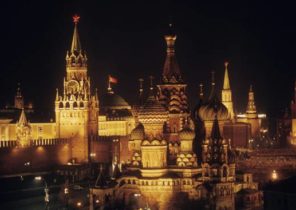Moscow — Zinaida Korneva feared dead. A young school teacher, they inspired fear since childhood. But she was called into the army. After the attack of Nazi Germany on the USSR in 1941, Stalin gave the order to military service including women. And Korneva, which, like the vast majority of boys and girls of the Soviet Union was the Komsomol was mobilized. From his native Ural city of Buguruslan he went to a training camp where she had to cut her luxurious chestnut braid. “In war, when the place was full of corpses, I no longer fear them” — slowly she says. She is almost 98 years old, she has calm eyes and a gray-haired hair. During the great Patriotic war in the army, according to scientists, were called from 800 thousand to a million women. They fought in the ranks of the army, Navy, air force, guerrilla groups, participated in underground work.
Now Korneva, who was a gunner for the air defense batteries, compares the war to the epidemic of the coronavirus that gripped the whole world, including Russia, where it was almost 190 thousand infected, about 1,800 dead, and the daily increase in cases is about 10 thousand per day. Korneva, who along with his family is in isolation in his apartment in St. Petersburg, decided to support the initiative of the British veterans Tom Moore, who promised to complete 100 laps of your garden with a Walker and managed to collect £ 30 million to help British doctors. Korneva also organized a fundraiser for employees of the Russian health care. “Together we defeated fascism in 1945, and now together fighting with this virus,” — said in the video this Russian woman. She knitted socks for Moore and sent them a parcel to England he birthday. “Let it be warm, from Russia with love,” she smiles.
Root says that no longer leaves the house, so to do 100 laps around the court, unlike Moore, she can’t. But daily promises to tell an episode from his military past, from the Holocaust that destroyed six million Jews. In recent years, Russia began to pay significant attention to veterans of the war. No family in Russia that wasn’t seared in the flames of war. Only in the Great Patriotic war killed 27 million Soviet citizens, including military and civilian.
She told me about how you lost your horse. As the job where she was not able to participate, was brutally beheaded nine of her military friends. About how in training camp at first she was afraid of lizards. Or how about the part that was in defense and was forced to save ammo, raided the location of the enemy forces and captured German ammunition.
Korneva has already collected 2,6 million roubles. “I’m very worried about this epidemic. I’m worried about the whole world, for what is happening in all countries. This is equivalent to the fighting, but during the war you can hide. And here the enemy is invisible, and we are all vulnerable,” she said during the video session.
This year was supposed to be special for the Root and approximately 75 thousand veterans who live in Russia, according to the Ministry of Labour and Social Protection.
The 75th anniversary of the victory of Soviet Army over Nazi Germany planned to celebrate the most solemn manner. But in the end the Russian government decided to postpone the magnificent parade, and other celebrations at a later date because of the pandemic. President Vladimir Putin, who turned 9 in May, one of the cornerstones of Patriotic education in Russia, expected to take this day in the Russian capital, world leaders and present the awards to dozens of veterans that, due to their age covid-19 is the greatest danger. In addition to awards, they will also receive a cash payment in the amount of 75 thousand rubles.
In addition to its award-winning root you will get another one. Immersed in memories, she talks about how 75 years ago she was fighting with my friends were resting in the barracks at the outskirts of Berlin. “The soul of us was quiet, everyone was sure that the war ends. Suddenly the person on duty said that just received the message about the surrender of Germany. We kissed each other, hugged and jumped for joy. We took a rifle, went outside and began firing into the air, celebrating the Victory. The war ended, we came back home,” she says.
Her life was another. Life of Europe — too. Korneva he was retired with the rank of captain. During the war she met her future husband. They settled in St. Petersburg. She again began to teach in the primary school. She has a daughter, granddaughter, great granddaughter and great grandson. These days she was telling them about his life. “Many have asked: what women do in the war? Actually, a lot of things. We have replaced the men. A lot of things,” she says.
Not all women veterans life went smoothly after returning home. Someone’s name in the Soviet Union were magnified, such as 18-year-old Zoya Kosmodemyanskaya, who fought as a partisan in 1941 was captured by the Germans, tortured and executed. He was posthumously awarded the title Hero of the Soviet Union. Or underground fighter Vera Voloshin, which was also awarded the title of Hero of the Soviet Union. Or the famous sniper, Lyudmila Pavlichenko. “Upon returning from the front, many women are not told that he fought. Poor health, difficulties in personal life, emotional distress, ambiguous attitude of the society led to the fact that the process of post-war rehabilitation of many of them was quite painful,” says historian Victoria Petrakov, an expert of the Russian military historical historical society, stressing that, in addition to the mobilized women, there were many of those who went to the front voluntarily.
The winner of the Nobel prize for literature Svetlana Aleksievich gave the floor to some of them in his book “war has no female face”. Because of the war, as before, and now write almost exclusively men. The heroine of this book tell about his return, about how at night I see the dead about heartache.

